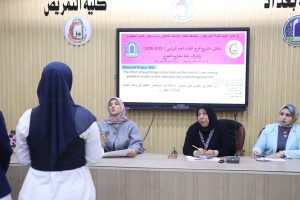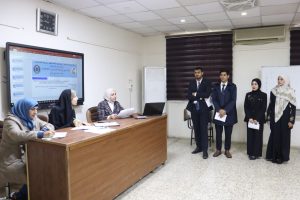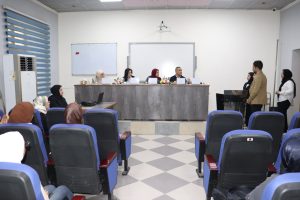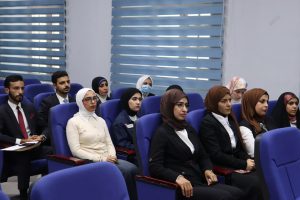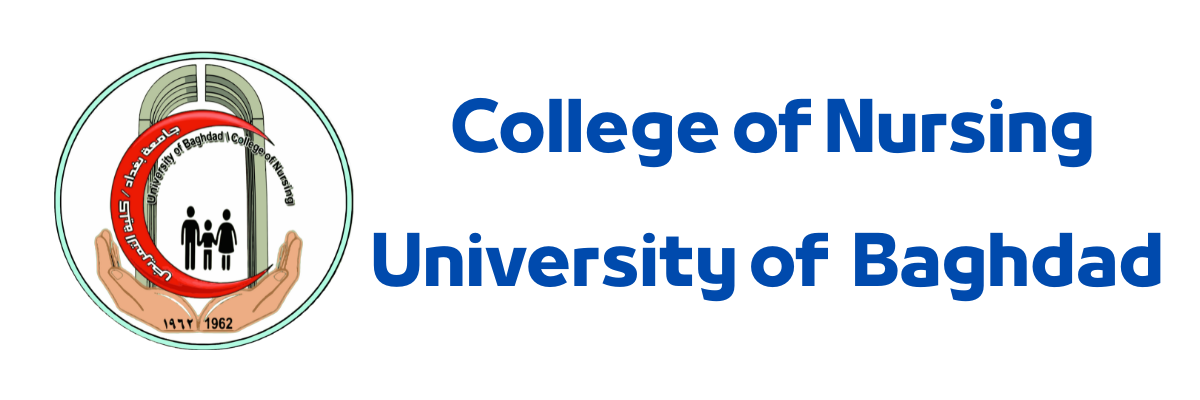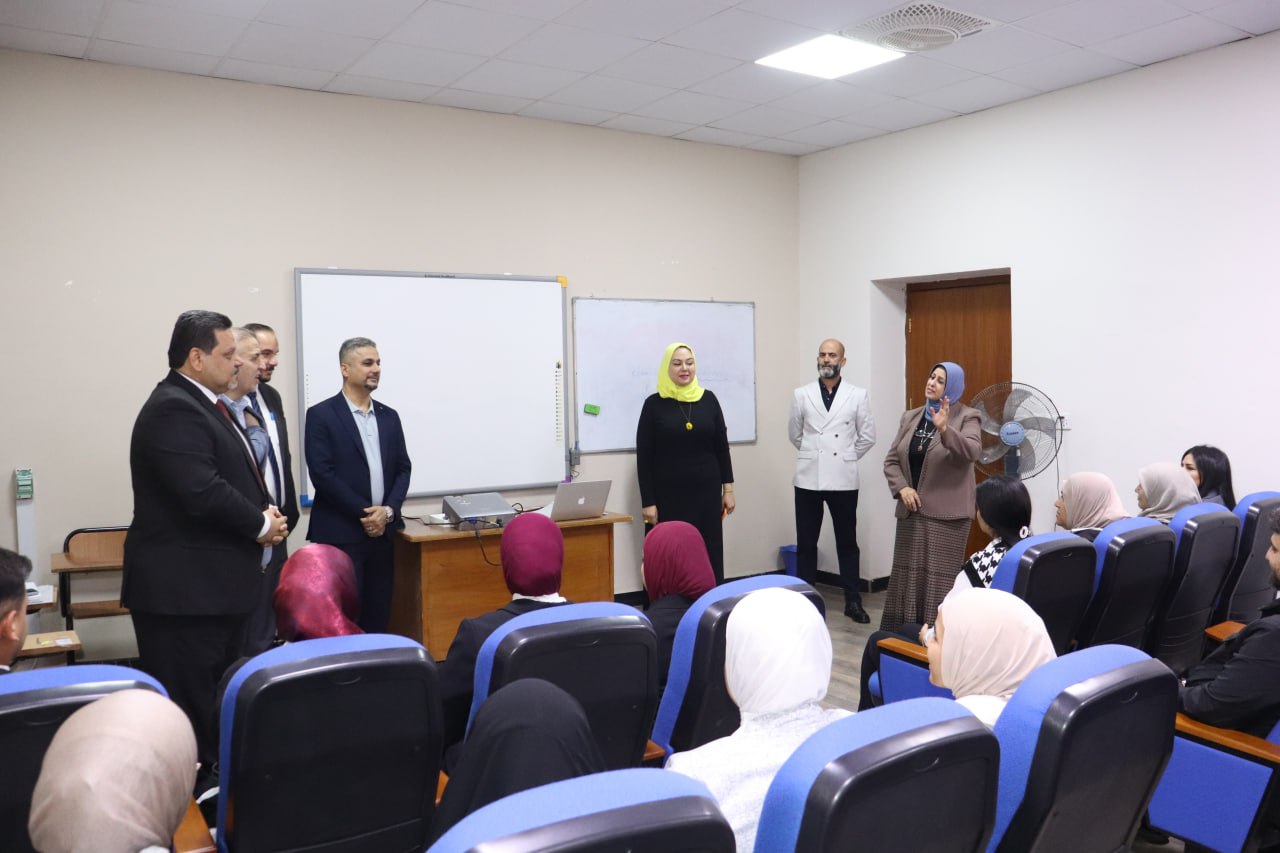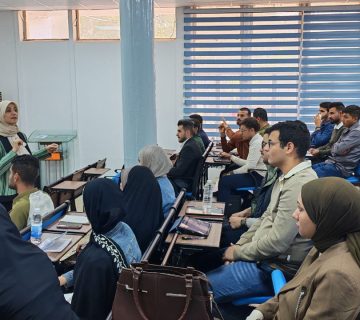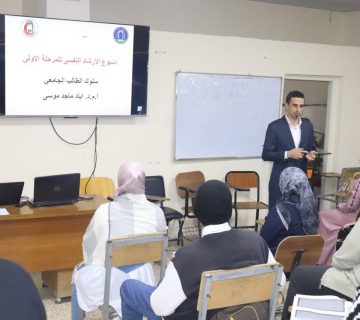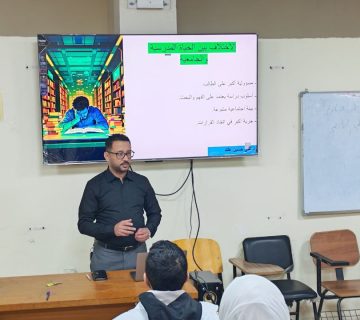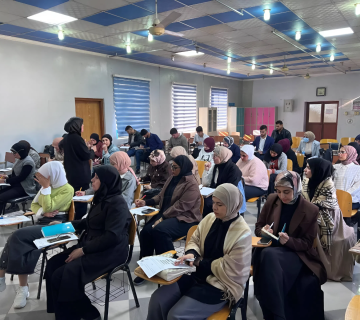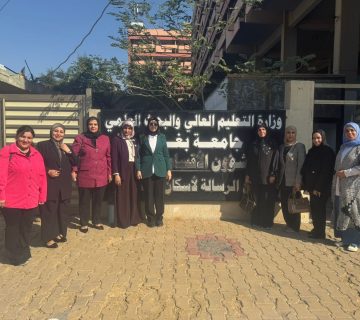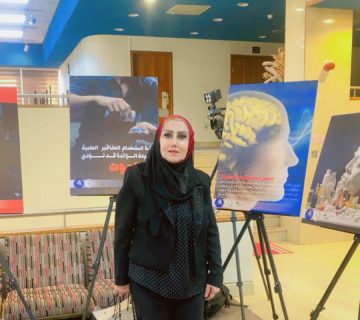The college of Nursing at the University of Baghdad has begun discussing the graduation research topics for fourth-year students from various scientific disciplines. This pivotal step aims to guide students toward choosing research topics that are original and scientifically significant, serving the health sector and contributing to the development of the nursing profession in Iraq
The discussions saw wide participation from the college’s specialized scientific committees, which included professors with extensive experience in various nursing fields, such as adult nursing, maternal and child health nursing, mental health nursing, community health nursing, pediatric nursing, nursing fundamentals, and basic sciences. In this context, the dean of the college, Prof. Dr. Wissam Jabbar Qasim, emphasized “the importance of choosing topics that reflect the actual needs of society and address existing health problems, thereby enhancing the role of nursing graduates as researchers and active contributors to improving the quality of healthcare.”
A variety of research proposals were submitted, including pioneering studies on artificial intelligence and nursing, assessing the quality of nursing care provided to patients with chronic diseases, and the use of modern technologies in nursing education. The committees continue to provide guidance and feedback to students to ensure that comprehensive and clear titles are formulated before the actual implementation of the research begins
In the same context, graduation research is an essential means of achieving the Faculty of Nursing’s overall commitment to supporting the Sustainable Development Goals, particularly Goal 3: Good Health and Well-being. To this end, students are encouraged to choose topics that focus on promoting health and disease prevention through studies that highlight health awareness mechanisms and reduce the spread of non-communicable diseases, as well as ensuring comprehensive health coverage through research evaluating the accessibility of nursing care services to the most vulnerable groups. Attention is also directed toward contributing to the building of resilient health systems by studying the role of nurses in responding to health crises and disasters. The integration of sustainable development concepts into curricula and research projects aims to produce a generation of nurses whose role is not limited to providing direct care, but extends to becoming leaders of change working towards a healthier and more sustainable society
